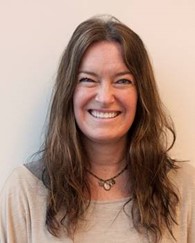Posted • Last updated
Closed
Open to Fraser – Vancouver Coastal, Patient partners in the Lower Mainland & Fraser Valley
Last updated
The increase in knee replacement surgeries in British Columbia provides a great opportunity for researchers and patients to co-design a research study on effective intervention strategies that improve the patients’ experience. Researchers at Simon Fraser University are looking for patients that have gone through this surgery at some Lower Mainland hospitals to work alongside them for this important study.
Open to: Patient partners in the Lower Mainland & Fraser Valley
Lead Organization or Department
Simon Fraser University, Center for Clinical Epidemiology and EvaluationAim
- Contribute to a co-design of a patient-centered intervention/s to improve patient experience and satisfaction, post-surgery
- Engage patients to share their experiential knowledge of total knee replacement to create a patient-centered research design that will have direct relevance to them and reflects the values, preferences and outcomes that matters most to patients
- Add to the capacity-building efforts in patient-oriented research
Level of Engagement
This opportunity is at the level of collaborate on the spectrum of engagement (www.iap2.org). The promise to you is that the research partner will work together with you to formulate solutions and incorporate your advice and recommendations into the decisions to the maximum extent possible.Eligibility
Open to volunteers in the Lower Mainland & Fraser Valley who:- Have had at least one knee replacement surgery between May 1, 2015 to May 1, 2017
- Are comfortable working in groups of 10-15 and sharing their experience
- Fluent in English, with excellent reading comprehension and communication skills
Logistics
- Vacancies: 5-6
- Date/time: First meeting to be held on July 26 (Wednesday), 10.00 am- 2.00 pm, second meeting to be held on August 17 (Thursday), 10.00 am- 2.00 pm ; the 1-day workshop and the third half-day meeting to be held in November **Please note: Meeting times/dates are confirmed for the first two meetings and will be confirmed for the one-day workshop and third-half day meeting based on patient availability
- Location: SFU Harbour Centre, Downtown Vancouver
- Time commitment: One year- 4 meetings, three half day and one full day:
Reimbursement
Travel costs including parking, food and refreshments will be covered for all meetings.Background
Overview: Total knee arthroplasty (TKA) is the most common joint replacement surgery in Canada. The need for TKA is expected to rise further, particularly given our aging population. Our research team investigated patient experience and satisfaction through a study and documented a 16% dissatisfaction rate at 6 months and multiple areas for improvement in the patient experience, including the intensity, duration and management of pain and a need for improved informational, clinical and personal support post-surgery. The little literature that does exist examines post-surgery physiotherapy, with a predominant focus on clinical outcomes rather than patient-centred outcomes. This project will contribute to the design of a patient-centered intervention to improve patient experience and satisfaction post TKA. Patient partners will be provided presentations about Patient Oriented Research, the previous patient experience with knee arthroplasty study results and recommendations and literature on potential interventions that could improve patient experience and satisfaction after TKA. They will be asked throughout the duration of the project to:- identify interventions that have the potential to improve TKA patient experience and satisfaction.
- get to know the study team, learn about patient oriented research and reflect between sessions with the hope of leading to richer and deeper dialogue.
- contribute to refining the proposed study design
- discuss their involvement in the entire process, including their patient roles, experience, facilitators and barriers to active patient engagement
- provide advice for future patient engagement
Health Care Partner Contact Information
Jami Brown
Engagement Leader, Patient and Public Engagement | Fraser Valley
604.510.0449
jbrown@bcpsqc.ca

